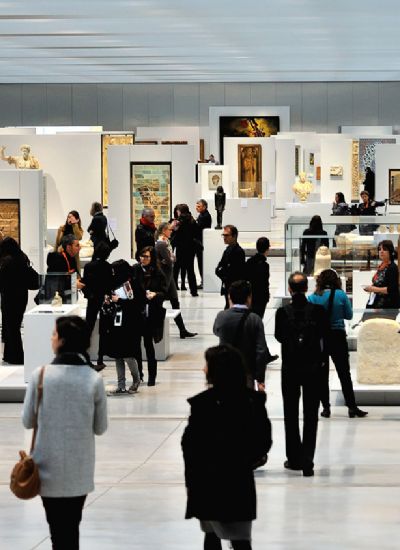What Should You Say When The Quantity Is None, Zero, Not Any: Pas De
This is the third part of my lesson on expressing quantities in French. First we studied How to express unspecific quantities, du, de la, de l', des, then how to express specific quantities, numbers and expressions of quantity, so now for the last part: when there is nothing, zero, zip, not any!
1 - The quantity is none
Aha! I bet you didn't think about that one! Well, zero is also a quantity. Which means when you say "I don't have money" (join the club), you are using a quantity.
You could be saying "I don't have any money", but the "any" is often left out in everyday speech.
So, if you wanted to actually say "zero", well that's easy, it's a number:
- j'ai zéro chat (I have zero cat).
But where it gets complicated is when you use a negative. "I don't have (any) cat".
In French, we'd say something like "I don't have none of cat". Please, don't think of it this way, because you'd never say that in English, so translating doesn't work. I am just saying it to explain, but it's more logical to think of it as "pas" being a quantity, therefore followed by "de/d'" in French.
- Je n'ai pas de chat. (I don't have any cat)
- Je n'ai pas de fille. (I don't have a daughter)
- Je n'ai pas de lait. (I don't have milk)
- Je n'ai pas d'enfants (I don't have children)
And of course, there is a main exception. This rule doesn't apply when your verb is "être" (to be). So with "être" in the negative, you say the same thing as in the affirmative.
- Je suis une fille. Je ne suis pas une fille. (I am a girl. I am not a girl).
2 - Adjectives of quantity are not followed by "de/d'"
"Aucun/e/s" and "plusieur/s" are adjectives. They don't need an article.
- J'ai plusieurs chats - I have several cats.
- Je n'ai aucun ami - I have no friend, I don't have a single friend, I don't have any friend.
More about them here.
3 - To recap
Some things are easy to quantify: one apple. It’s a whole apple. You usually buy, eat, need one, 2, 3 apples. But you may decide to be vague, and say “des pommes” = more than one, but I don’t know exactly how many.
Now, some things are less easily quantifiable… You don’t buy “one rice”. You buy either “one kilo of rice” (a kilo of, an expression of quantity), or “some rice” (unspecific quantity of an item which is not easily quantifiable).
So you need to ask yourself: "Am I talking about..."
- A very specific quantity (a number, or an expression of quantity : une pomme, 5 pommes, un kilo de pommes, une bouteille d'eau…).
- An unspecified quantity of an item (du vin), or an unspecified quantity of something that you cannot quantify easily (du riz, de la patience)
- More than one of an item, but a vague plural quantity (des pommes)
- No item at all (pas de pomme)
This is a lot to take in. I suggest reading these lessons over a couple of times, and even reading it out-loud so you really take the time to understand and process everything I say (we sometimes read faster than we process). You can also follow the numerous links to explore one concept in depth, and train with exercises.
The best way to train though is through a "Learn French in Context Story" - I WILL soon write one mixing up all these notions and food vocabulary, since these two often goes hand in hand - so stay tuned, subscribe to my newsletter if it's not already done (to the left of this page "free email newsletter", just enter your email) or to my Facebook or Twitter and I'll keep you posted!




















